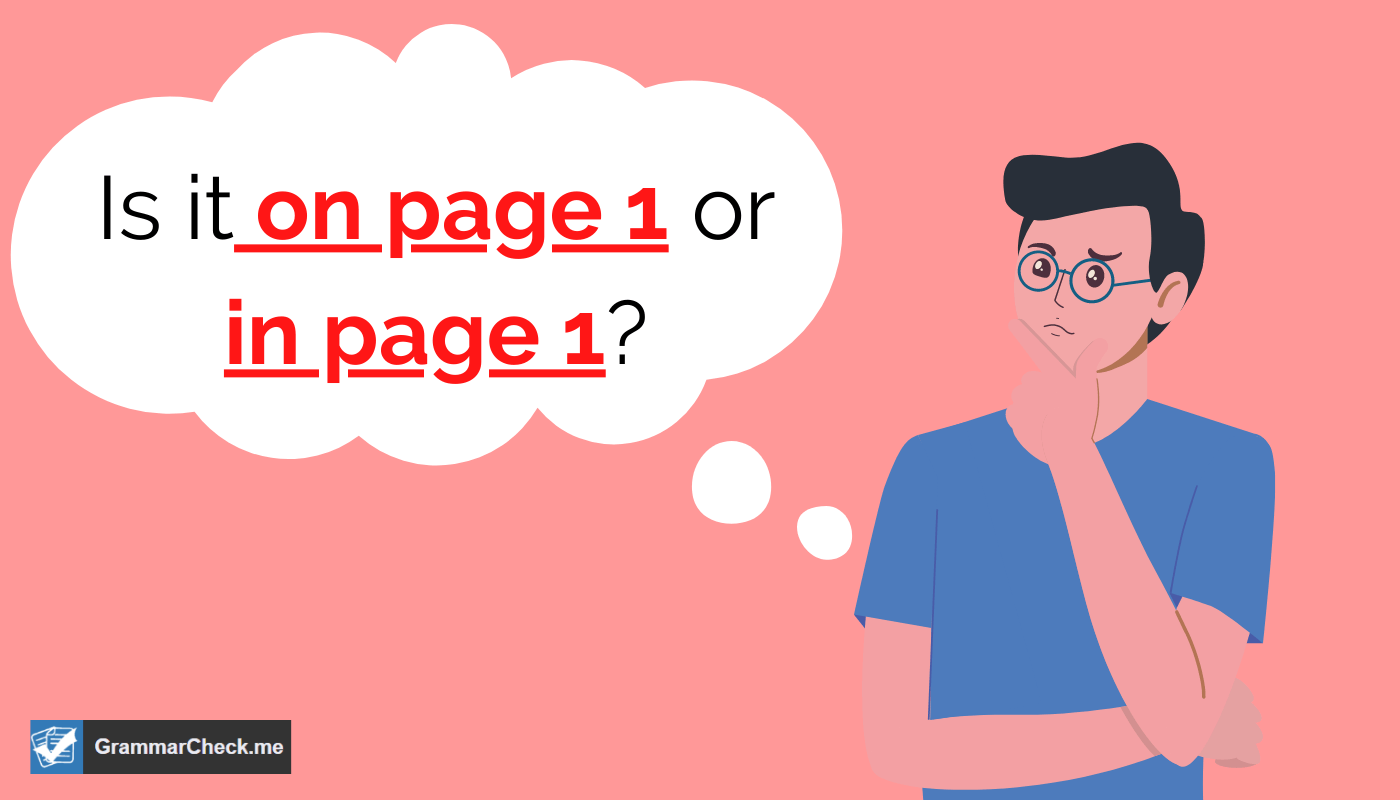There is a long list of words in the English language which look similar and can be easily confused. The words “on” and “in” are two of the most commonly confused words. In fact, most people think you can use the two words interchangeably in their writing. To illustrate this rule with an example, this article will focus on the difference between on page or in page.
Which Is Correct: In Page or On Page?

The truth is that it depends on the context in which you are using the phrase, just like the words which & that. Changing just one letter can completely change how a word or phrase is used!
“On Page” – Typically refers to the location or position of something within a website, physical book, newspaper, or another document.
- “The table is on page 10 of the manual.”
- “I always read the news on page 3 of the weekly newspaper.”
“In Page” – According to Google’s ngram, this phrase is far less common and usually refers to the location or position of something within an individual website or web page. Some people may even try to add a hyphen, just like with the words reuse or re use. But no hyphen is needed!
- “The link to the homepage is in the footer of the page.”
- “I read in an email that we have off for Christmas Holiday.”
Takeaway: Both “on page” and “in page” can be used correctly depending on the context of the situation.
In vs On – Sentence Examples
“On” and “in” are two of the most popular prepositions used in the English language, just like the words other then and than. They are used to indicate the relationship (i.e. location) between a noun or pronoun and other words in a sentence.
“On” is most commonly used to indicate that something is physically in contact with something or to indicate that something is located above or at the top of something else.
- The cat is on the couch.
- The book is on the shelf.
- The answer is on page 3 of the textbook.
The preposition “in” is used to indicate that something is contained within or inside something else.
- The cat is in the box.
- The book is in the bag.
- He uploaded pictures of his dog in a blog post.
Remember, just like we saw in our post comparing the words number vs amount, you must understand the context of a sentence to choose the right word!
Takeaway: Both words are very similar. The word “on” is used to demonstrate physical contact or proximity while “in” is normally used to indicate containment.
What Is A Preposition?
To put things simply, a preposition is a word that is used to show the relationship between a noun or pronoun and the following words in a sentence, just like to or too long! In most cases, they are placed before a noun or pronoun to show location, time, direction, or other relationships.
Some common prepositions include:
- at
- by
- for
- from
Punctuation & spelling can make a huge difference in a sentence. Take run vs ran for example. In this case, spelling can change the entire meaning of a sentence.
Quiz Time
Try to quick quiz to see if you really understand this grammar rule. Remember, just like with the words axel or axle, spelling can make a huge difference.
- Was it indicated on or in the documents?
- Was it stated in or on the document?
- Did you see the post on or in Facebook?
Here are the answers to your quiz. Be sure to give the quiz a try before glaring at the answer key!
- In
- In
- On
Frequently Asked Questions
“In” is used to indicate that something is located or contained within a larger place or object. “On” is used to indicate that something is in a position above or supported by something else.
It depends on what you are referring to. If you are referring to the content or information contained within a page, you would say that it is “on” the page. If you are referring to the physical location of the page itself within a book or document, you would say that it is “in” the first page. So the answer depends on the context of the specific sentence.
If you are talking about posting something on the social media platform Facebook, you would say that you are “on” Facebook. If you are talking about being a member of or participating in the Facebook community, you could say that you are “on” or “in” Facebook. For example: I am in the Facebook group for local hikers.
It depends on the context, but it is more common to say that you are working “on” a project, meaning that you are actively working on it. However, you could also say that you are “in” a project if you are a part of it or involved in it in some way.
The Bottom Line
Now you should have a firm understanding of the difference between in or on page. It can be confusing to know when to use the prepositions on and in! There are many words in the English language, like casual and causal, that is easily confused. Whenever you are talking about a “page”, use the word “ON”. Remember this grammar rule and save yourself from making a simple typo in your writing.
